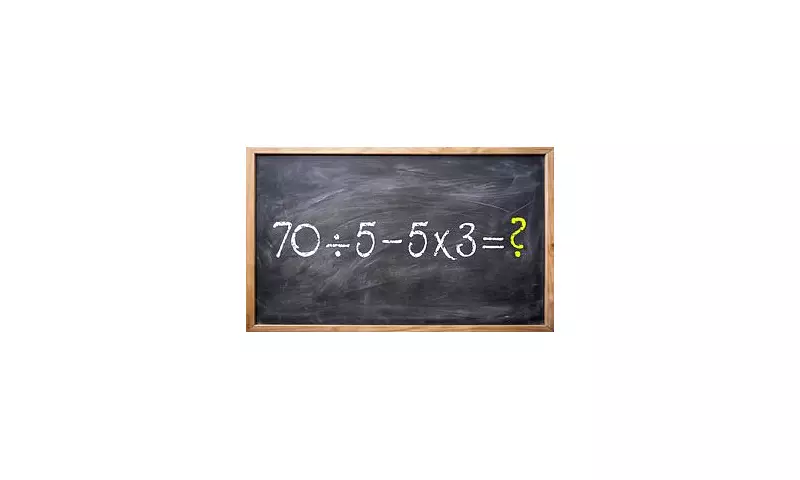
A deceptively simple math equation has taken the internet by storm, leaving even the brightest minds scratching their heads. The problem, which appears straightforward at first glance, has sparked heated debates across social media platforms.
The Equation That Divided the Internet
The controversial equation reads: 6 ÷ 2(1 + 2) = ? While some insist the answer is clearly 1, others vehemently argue it's 9. This mathematical conundrum has reignited discussions about the proper order of operations.
Why People Can't Agree on the Answer
The confusion stems from differing interpretations of the PEMDAS/BODMAS rule (Parentheses/Brackets, Exponents/Orders, Multiplication and Division, Addition and Subtraction). The key disagreement centers on whether the implied multiplication (2 adjacent to parentheses) takes precedence over the division.
What the Experts Say
Mathematics professors explain that the equation is intentionally ambiguous due to poor notation. In proper mathematical writing, the expression should be clarified with additional parentheses or explicit multiplication signs to avoid confusion.
"The problem isn't the math itself, but how it's written," says Dr. Emily Carter, a mathematics professor at Imperial College London. "In academic settings, we would never present an equation this way precisely because it leads to these interpretations."
How to Avoid Similar Confusion
For those looking to solve such problems correctly:
- Always start with operations inside parentheses
- Evaluate exponents next
- Perform multiplication and division from left to right
- Finally, complete addition and subtraction from left to right
The viral equation serves as a reminder that clear communication in mathematics is just as important as getting the right answer. While the debate continues online, one thing is certain: this simple-looking problem has successfully highlighted how easily mathematical notation can be misinterpreted.





